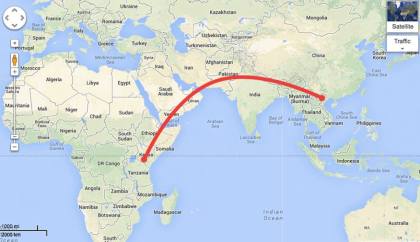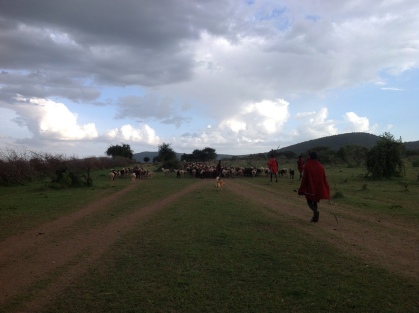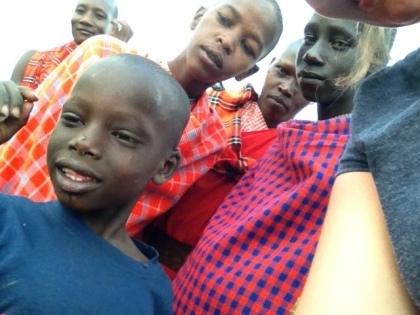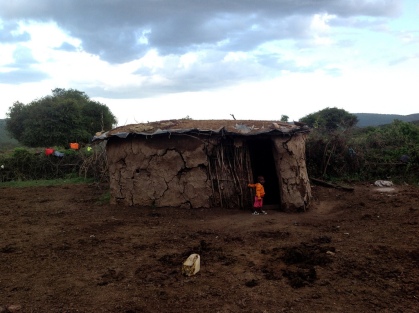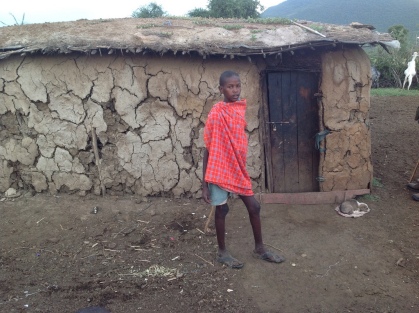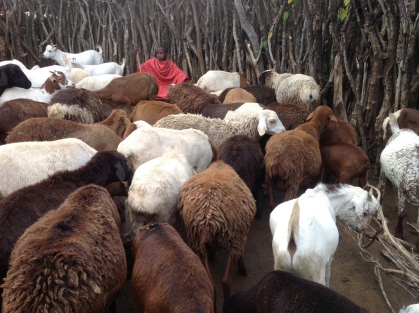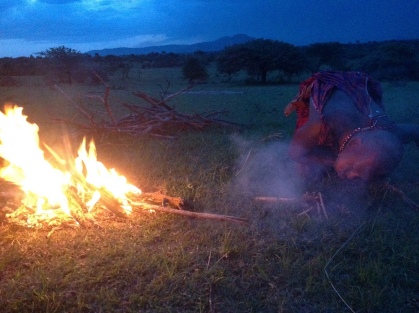Filed under: Uncategorized
Hi!
Over the past few days, I’ve received a few dozen new followers on this blog. (Hello!) Just wanted to reiterate that I will no longer be updating this blog as I no longer live in Nairobi. If you want to keep up with my new posts about life in Vietnam, please follow me at Sketches of Hanoi.
Thanks!
Kwaheri.
Hello –
As many of you know, I left Kenya at the end of January and moved to Vietnam. (For those of you who started following this blog after my post on the Westgate tragedy was featured by WordPress as an Editor’s Pick: Hi! Thanks for following! And just FYI, my leaving Kenya didn’t have anything to do with Westgate; my husband was relocated for work.)
If you would like to continue following my latest trials and tribulations as an American expat living in Vietnam, check out Sketches of Hanoi. And please feel free to leave comments or other feedback on the posts; I love reading them.
Thanks!
Hannah
Filed under: Uncategorized | Tags: Al Shabaab, Kenya, post-election violence, Terrorism, violence, westgate, WPrightnow
Six months ago, Kenya was prepared for violence.
All across the country, from the savannas of the Rift Valley to the sea-drenched sands of the coast, people were bracing themselves for the possibility of bloodshed following a tense and highly disputed presidential election. Four and a half years earlier, post-election violence left more than a thousand corpses in its wake and hundreds of thousands of families homeless, many of whom still reside in ‘temporary’ resettlement tents that dot the countryside.
In the days leading up to the election, cupboards were stocked, barrels of drinking water tucked away, and emergency supplies inventoried. Countless foreigners and expatriates fled to neighboring countries as a cautionary measure at the same time that international journalists and election observers flooded in. There was a palpable collective inhale of breath as votes were counted, re-counted, and re-counted again. For days, the capital city came to a standstill. The only movement was the sun’s slow arc across the sky and the rustling of acacia leaves in the trees.
And then, slowly, the country exhaled.
The election results were challenged, but instead of machetes and torches, the weapons of protest this time around were courtrooms and ballot boxes. One candidate was chosen. Foreign journalists intent on capturing a political frenzy departed, trying not to be disappointed at the unified, peaceful proceedings. Expats trickled back in. The threat, it seemed, was past.
And now, as I write this just half a year later, Westgate mall is under siege. In the distance, black smoke billows up into the late-afternoon sky, staining the clouds. Inside the mall, approximately a dozen assailants hold sway over an unknown number of hostages who have been trapped for three days as Kenyan military forces battle for control of the area. Reports are vague and contradictory. What we do know is that the death toll is currently 67 and will most likely rise as bodies are recovered. Hundreds have been injured. And the Somali Islamist insurgent group Al-Shabaab has claimed responsibility for the attack.
As an expat living in Nairobi, I often feel like I inhabit a liminal state – I live here, but not permanently; I empathize with Kenyans, but I am not Kenyan; I love this country, but it isn’t home. And the expat community in Nairobi is in many ways its own, insular little universe; we overlap in strange and comforting ways. But there remains a gentle, subtle buffer between expats and native Kenyans, a cushion that I am always aware of and aim to treat with respect and deference: this is your country; it is not mine.
The siege on Westgate has shifted my perspective, widening the lens. The victims in the attack aren’t strange actors, trapped in some impossibly far away country, tangled in a complex web of politics and violence. They are innocent, ordinary people – mothers and daughters, housewives and poets and bankers and waiters. One of the victims is a regular at the yoga studio I frequent; another is a childhood friend of my best friend here. One of my friends decided at the last minute not to make the turn into the parking lot and make lunch for her kids at home instead; another was trapped for several hours as gunshots echoed through the building. There is no difference between any of us – it could have easily been me at the mall that day. Perhaps it almost was.
In the days and weeks and months ahead, as details emerge and the events of the attack are analyzed, I can only hope that the country remains as united as it has been in the last six months and doesn’t resort to retributive violence against the already marginalized Somali community. Kenyans rose above the expectations that plagued them once when conflict seemed imminent, and I am certain that this too can be overcome.
Now it’s just a matter of time; of waiting to exhale.
Filed under: Uncategorized | Tags: election, kenyatta, peace, politics, post-election violence
Every day, when I take my dog for a short walk outside of my apartment complex, I stop by the front gates and talk with Boaz, the resident askari (security guard). We chat about the weather, upcoming holidays, happenings around the neighborhood – the usual topics that comprise small talk. But this past week, as the country ground to a halt while ballots were counted, mis-counted, re-counted, and re-counted again, there was only one subject of discussion, here and everywhere: the election.
Boaz, like most non-Kikuyu or Kalenjin Kenyans, supported current prime minister and leader of the Orange Democratic Movement (ODM) party, Raila Odinga, in his bid for the presidency. In the weeks leading up to Monday’s election, I would walk by the askari post where Boaz would be sitting, listening to the radio in the sunshine. He would point to the prime minister’s tinny voice issuing from the radio’s speakers, promising campaign reforms in English and Swahili, and tell me, grinning, “Listen – this is our next president!”
“Our country is ready for change,” he would say. And the conviction in his voice was unshakeable.
On Sunday evening, I wished him luck in the voting process the following day. On Monday, as I walked through the gate in the morning sun, he proudly displayed his pinkie finger, the fingernail stained by the dark ink used to signify an individual who has cast a ballot. He had awoken hours before dawn to wait in endless voting queues, along with hundreds of thousands of Kenyans across the country. On Monday, his grin was wider than usual, his eyes bright with hope.
On Tuesday, our conversation was brief: “So, now they’re counting?” “Yes, so we just wait.” On Wednesday morning, following a breakdown in the electronic tallying system which caused all ballot counting to stop and begin again from the very beginning, a hint of fatigue colored Boaz’s voice: “Still counting,” he told me, adding, “I have heard rumors of fraud in Central Province. People getting two, three ballots each. But as long as the IEBC [Independent Electoral and Boundaries Commission] addresses these issues, I believe people will remain calm.”
“Kenyatta [Odinga’s rival and presidential frontrunner] is ahead in votes. But that will change,” he said confidently. “If you look at a map of Kenya, it’s red just in the middle” – red signifying supporters of Uhuru Kenyatta’s party, The National Alliance (TNA) – “and orange everywhere else! The north, the coast – all over!”
“So we are just waiting for the votes to be tallied.”
On Thursday, as the number of counted ballots rose and Kenyatta’s lead over Odinga widened, I stopped by the front gate as usual to discuss the latest developments.
Holding the metal door open with one hand, his pinkie fingernail still stained with ink, Boaz shook his head and looked grim. “I have nothing to say today,” he said, and gave a half-hearted, bitter laugh.
Friday morning marked the first of several missed deadlines when the IEBC claimed it would be ready to release final results to the public. People’s impatience with the bungled process, overshadowed by a growing fear that each passing day heightened tensions and the possibility of violence, was stretched thin.
There was no smile in Boaz’s voice, no sparkle in his eye.
“Kenyatta has stolen the election from us,” he said matter-of-factly. In his voice, anger mixed with sadness, colored by a sense of resignation; of inevitability. And for the first time since the political contest began, I didn’t know what to say to him.
Another day came and went without a final verdict. But finally, six days after Kenyans turned out in record numbers to make their voices heard under the new democratic constitution, six days after the people maintained peace despite rallying cries of hate speech and incitements to violence – and to the disappointment of foreign journalists who flooded the country, eager to snap photographs of burning buildings and machete-wielding slum-dwellers – the votes were tallied, and a president was declared.
Uhuru Kenyatta won the election with 6,173,433 votes, or 50.03% of total votes cast.
The margin of victory was so slim – just over 4,000 votes of the 12.3 million cast – that Odinga has pledged to contest the results in court. As television screens across the country broadcast images of red-shirted Kenyatta supporters dancing in the streets, waving flags and cheering, I walked down to the front gate.
Was the election really over? Or is this just the beginning of the next phase – of judicial appeals, protests, and defiance?
As the late afternoon sun streamed through the leaves of acacia trees, I walked up to Boaz. “I’m sorry,” I said. There wasn’t anything else to say.
He smiled, sadness touching the corners of his mouth. Sadness, but something else – acceptance? Exhaustion? Relief?
“Now is not the time to look to the past,” he said simply. “Now, all we can do is look ahead, to the future.” And the radio blared on.
Filed under: Uncategorized | Tags: election, politics, post-election violence, violence
In Nairobi, four days before the election, the tension is palpable.
The city is blanketed with scrawled graffiti and an endless repetition of low-budget political posters, one stiffly posed smiling man indistinguishable from the next. On street corners and in parking lots, trailer trucks wallpapered with campaign stickers blast deafening music to rally supporters. (The purpose of these so-called rallies remains unclear, as most of the gathered crowd can be seen sitting on the ground, eating ugali and drinking soda, and looking utterly bored.) In shop windows, typed notices inform customers of upcoming closures “due to elections” – some, hopeful, announce closures of only one day to coincide with the official holiday, but many others, less optimistic, announce closures of a week or more.
In coffee shops and mutatus, grocery store queues and board rooms, there is only one topic of conversation – and one question being asked: will there be violence? Or, more pointedly, how bad will it be this time? On this topic, opinions vary widely – no one wants a repetition of the 2007-2008 disaster, when close to a thousand people were killed, hundreds of thousands displaced, and the country plunged into social and economic chaos that continues to reverberate today. But whether or not enough time has passed, and enough change has occurred, to ensure that this election remains peaceful is a contentious debate.
“We Kenyans have learned from our mistakes. What happened last time will not happen again,” my taxi driver assures me. But what about the reports of machetes being bought in droves from supermarkets? A pause. “Better to be prepared this time. Just in case,” he says.
Despite the mounting hysteria, evinced mostly by foreigners, aid workers, and ex-pats who are fleeing the country in advance of the election and following melodramatic “emergency preparedness” decrees (“prepare a ‘go bag’ with emergency supplies including dental records, power of attorney, moist towelettes, and a signaling whistle”) the majority of Kenyans seem cautious but hopeful that this will be a relatively peaceful election.
The world is watching, this time around. But whether or not that will be enough to stop history from repeating itself remains to be seen.
We leave camp in late afternoon, stepping on the lengthening shadows of acacia trees and smearing the sandy footprints of impalas beneath our boots. The air is filled with birdsong, the chirps and trills of families beckoning each other home before nightfall, to safe, warm nests. On a grassy hill nearby, a gazelle raises its slender neck and watches us warily; as our footsteps fade into the distance, he senses that potential danger has passed and gracefully lowers his head, midnight eyes disappearing into the tall grass.
As we walk east, toward the village, the rhythmic clang of cowbells crescendos and carries across the savannah on a breeze. Nestled in these hills are hundreds (thousands?) of herds of cattle, goats, and sheep, all plodding home as dusk darkens the clouds. Beside each herd, a Maasai shepherd, swathed in fiery red cloth and clasping a whip of twine, guides the pack back to the village they left at sunrise. Tonight, the animals will sleep soundly, safely guarded from intrepid leopards and lions by a towering fortress of tall branches – a circle within a circle. When the stars fade into clouds tomorrow morning, they will leave home once again.
This is the refrain of life here in the Maasai Mara, day after day. The verses of weather and season may vary, but the melody remains constant.
We reach the village as twilight darkens the horizon. Following a meandering herd of goats through a gap in the perimeter of the enclosure, we duck beneath spiky branches and stand, watching, as a dozen boys push their way through the protesting herd towards us. Barefoot and wide-eyed, they rush up near us and then abruptly stop a few feet away, suddenly shy. When a young boy spots his father in the crowd, coming home from another long day away, his eyes light up and he runs forward to greet him, breaking the spell. One by one, the boys come up to us and offer their shorn heads for us to touch – a traditional way of greeting one’s elders. We lay our palms on their scalps for a moment. It’s a solemn, ancient ritual that lives outside of time. And it feels like a blessing – for us.
One of the Maasai men – a father of four with one more on the way, his wife’s belly swollen with expectation – invites us into his home. Standing in the doorway, a young, half-naked boy of about four or five inexplicably bursts into tears. He is afraid of wazungu – white people – the father explains to us, laughing. I don’t blame the boy – how strange we must look, with our pale skin and sunburnt shoulders, holding little black boxes to our faces that flash blinding light, pointing and murmuring in foreign tongues. I smile at him but he runs off to bury his tear-stained cheeks in the safety of his mother’s skirt, which envelops him like a quilt.
At the invitation, we follow the man into his home. From the outside, the structure is squat and square, a six-foot-tall box of cracked, muddy dung walls topped with a flat roof of grass. We duck through the low doorway and enter darkness. Stooping, clumsy, blind, we are overgrown weeds in a silent riverbed, obstructing the natural flow of water. We make our way to the main area of the home, the heart of a hearth where a fire burns day and night, and sit around the flames on warm planks of wood. Within the confines of the low walls, it is impossibly hot, impossibly dark. Beads of sweat glisten orange reddish in the sudden night as they slide down our cheeks. The father tells us how his wife gave birth here, where we are sitting, one night while hyenas howled to the moon, and how she will soon bring another child into the world in this place where light and rain can’t touch.
When we leave the village, awkwardly thanking the man and his family in the words of the Maasai, the sky is streaked the color of fading embers. A chill has come into the air, and the goats have begun huddling together in clusters. Only the children watch us depart – the men and women of the village have returned to their homes, ready to eat and sleep and awake early tomorrow morning.
The melody ends, pauses, and begins once again, carried through the wind on the wings of birds.
Hey! Hi! Hey there! Remember me?
Contrary to appearances, I haven’t disappeared into the Kenyan wilderness, eking out a prehistoric hunter-gatherer existence in the savannahs of Tsavo with only my wits and the friendship of sympathetic caribou to guide me. If only.
Nope, I’ve been here, in Nairobi, rapidly aging in what seems to be a twisted version of progeria – six months ago, when I arrived in Kenya, I was full of vim and vigor, ready for adventure. Safaris! Tiny airplanes! Road trips! Baby elephants! And now?
I spend an inordinate amount of time baking bread, hanging out with birds, and amusing myself by conjugating nonsensical sentences in Swahili.
Sad, isn’t it.
To be honest, it’s a shift I remember from when I moved to Nicaragua, and I assume it’s inevitable that novelty becomes routine after a certain point. This isn’t to say that my life in Nairobi consists solely of geriatric pursuits – I am planning a white water rafting trip for this weekend as we speak – but that things have settled down a bit. And that’s not necessarily a bad thing.
Every weekday, I wake up to morning sunshine, take my dog for a walk, and brew a French press of Kenyan coffee. I spend most of the day out on the balcony, working, while dozens of rainbow-colored, chirping birds flit around, munching on sunflower seeds and building nests. In the afternoons, I practice Swahili, walk my dog before the clouds darken, and read or watch a rented HBO series as the sun begins to set. I cook dinner while listening to music and drinking wine, and after N. comes home from work, relax and watch a movie with a curled up, snoring dog and the sound of thunderstorms. On weekends, I cook elaborate meals with friends, take afternoon naps, and water the garden. On Sunday nights, N. and I make pizza from scratch and drink overpriced red wine.
It’s not always an adventure, but it works. And living here is, finally, beginning to feel like home.
Filed under: Uncategorized | Tags: clips, Kibera, published articles, TEDx, Washington Post
The piece on TEDx I wrote — which references my visit to Kibera — appeared in Sunday’s Washington Post, on page four of the Business section (/front page of the Technology section!):
In four corners of the world, TEDx conferences explore big ideas
NAIROBI — From Dakar to Des Moines, they landed in Doha determined to change the world. The crowd of 650 gathered in the Qatar capital’s cavernous Katara cultural village to attend the first summit for TEDx organizers — a group bound by a passion for sharing “ideas worth spreading.”
The crowd included the head of communications at an Armenian news agency, a Dutch hospital worker who believes in self-empowerment for terminally ill cancer patients, a Serbian psychologist and translator, an Ohio-based school design planner who can type 100 words a minute and a Pakistani telecom engineer who says he prefers fighter jets to women.
TEDx, a program of locally organized events inspired by TED Talks, has spread rapidly from the hills of Silicon Valley to the nooks and crannies of African slums, remote Indian villages and rural Chinese schools. TED derives from the words technology, entertainment and design. In three years, nearly 3,500 events have been held in more than 800 cities in 126 countries, with topics ranging from how young people can shape the post-revolutionary future of Tunisia to why stark economic inequality exists in Colombia.
“While we all come from different cultures, what binds the TED and TEDx organizers is the belief that we can change the world through ideas,” said Lara Stein, director of TEDx worldwide. “Inspiration and passion transcend cultures and cultural barriers. ”
In Doha, the organizers were artists, writers, and thinkers, previously known to each other only through the online TEDx community forum. They had come together to learn from one another and create opportunities for future collaboration.
They were ready to engage, inspire and provoke conversation — much like others had in Kenya a week earlier.
* * *
On a stifling Saturday afternoon, in a ramshackle meeting hall off a dead-end dirt road in Kenya’s Kibera slum, dozens of people sat in plastic lawn chairs, fanning themselves. Mothers wearing headscarves and flowing robes held squirming babies in their laps. Teenagers buried their faces in mobile phones, and a trio of middle-age men conversed in low tones. In the front of the room, a hand-painted, vinyl sign fluttered in the intermittent breeze: TEDxSilanga, it read, in crisp red letters.
Within moments, a microphone was switched on, a laptop and projector plugged in, and Chris Makau, the 26-year-old university student from Kibera who organized the event, asked the assembled group: “Why can’t Africa produce enough food to sustain itself?”
For three hours, community members, students and NGO workers tackled the question. They discussed government infrastructure, the generational division of labor in Kenya, sustainability and investment in technology. Ideas were proposed, debated, encouraged, rejected.
As the sun set, Makau asked another question: “What legacy are we leaving our children?”
Especially in impoverished areas like Kibera, Stein explained, the chance for people to connect in such an egalitarian forum is limited. “We find that there is often a lack of opportunity for people in the developing world to share their ideas and also be inspired by listening to the ideas of others,” she said.
This sense of empowerment is key, Makau said. “No one is going to come into Kibera and solve our problems,” he said. “We have to figure out what the problems are and solve them ourselves.”
TEDx has left its mark on communities worldwide. At an all-girls college in Pakistan, a TEDx event marked the first time men and women were allowed to participate in a forum together. In a juvenile prison in Lipcani, Moldova, known for its innovative rehabilitation efforts, a TEDx event prompted prisoners to reconsider the concept of freedom. And in Dallas, several hundred middle-school students attended TEDxSMU after participating in community service projects that benefited local and international charities. The success of the program is tangible, creating networks of inspiration that give rise to measurable change.
Makau’s goal in the slums of Nairobi, he said, is “to turn thinkers into doers.”
As the sun dips below the horizon, illuminating the corrugated steel roofs of Kibera with blazing flames, 23-year-old John Peter Okoth is talking a mile a minute. Gesticulating with a glass Coke bottle in his grip, his words tumble out, English punctuated with lilting Swahili.
“I was keen to hear the ideas here today because I believe they can lead to change,” he said. The mechanic had given up a day of work to participate in the TEDx event.
And what will he do now that the event has ended? Go back to work? Head home? Stop by the local pub for a Tusker beer?
“Now,” he said, a wide grin spreading across his cheeks, “I will tell my friends what I have learned.”
It is an idea worth spreading.
Filed under: Uncategorized | Tags: animal rights, genetic engineering, GMOs, infectious diseases, Innovations, malaria, WaPo Labs
I wrote this blog post for work, and after it was picked up by the Post’s Innovations blog, I thought, hey, it’s technically relevant to Kenya — the more cross-posting, the merrier! “It’s my blog and I can post what I want to,” Anthony. Ahem.
The Story of How a Few Special Goats Could Cure Malaria
Each year, malaria is responsible for the deaths of more than 650,000 people worldwide. In Kenya, where I live, the disease ranks as the number one cause of death among children, killing tens of thousands annually. Unlike other infectious diseases, malaria is both preventable and treatable – but in Kenya, like many other parts of the world where the disease runs rampant, lack of education, funding, health services, and infrastructure leave the population vulnerable to infection.
The statistics are grim, despite ongoing global efforts to eradicate the disease. But new and innovative approaches are being developed all the time, from breakthroughs in vaccine research to experiments using lasers to zap disease-carrying mosquitos before they infect humans.
But, according to one researcher, the key to combating the disease lies elsewhere: in the milk of some very special goats.
Mark Westhusin, a professor of veterinary medicine and biological science at Texas A&M University, is involved in a project that aims to genetically modify goats so that the animals produce anti-malarial vaccines in their milk. These so-called “pharm animals” could in theory produce vast amounts of the vaccine at a fraction of the current cost.
“There is tremendous potential to produce malaria vaccines and other types of medicines, especially for Third World countries,” Westhusin told Fast Company’s Ben Schiller. “If you produce these proteins in goats and other transgenic animals, it’s way more efficient, and cheaper, than the old-fashioned ways.”
Currently, the vaccine present in the goats’ milk must be isolated and purified before being injected. But, Westhusin says, with further research and development, the goats could eventually produce a drinkable vaccine – perhaps within ten years.
The implications of this pharmacological innovation are stunning – imagine the convenience, efficacy, and cost effectiveness of relying on goats’ milk to inoculate a population in place of traditional methods. In a rural village, where mosquito nets are few and far between, and health services even scarcer, a pharm animal could save countless lives.
But there is, as always, a catch: vocal criticism from animal rights activists, who allege that genetically engineering animals is cruel and unethical, and call for the practice to be banned.
As scholar Ned Hettinger argues, “There exists a significant burden of justification against the production of such monstrous transformations of living beings into mechanical, artificial modes of existence. Prima facie, biotechnology should not be used to impoverish creatures, to strip away their capacities, or to diminish the richness of their lives.”
Westhusin, unsurprisingly, doesn’t give credence to the position of animal rights proponents. Endeavors such as developing vaccine-producing goats are “great,” he says, “but they run up against a lot of hurdles. One of the first are the animal welfare groups who jump on top of this, and say we shouldn’t be using animals for anything. You know, blah, blah, blah.”
Westhusin may dismiss the concerns of the activists as “blah blah blah,” but critics of bioengineering are by no means a small minority, and it is safe to assume that technological advancements involving transgenic animals will continue to be a source of controversy.
From a scientific standpoint, though, the importance of Westhusin’s work can’t be overstated. The devastating effects of malaria could, theoretically, be eradicated during our lifetime – and it will be difficult to convince health practitioners to prioritize the welfare of kids over children.
Filed under: Uncategorized | Tags: grammar, language, noun cases, Rosetta Stone, Swahili
When I set my mind to accomplishing something, I tend to develop tunnel vision until the goal is achieved (see college GPA, wedding planning, bread baking). I generally consider this a positive attribute – a triumph of determination, if you will. (The less flattering “obsession” comes to mind, but I’ll stick with “determination.”)
My latest “project” has been a straightforward attempt to learn Swahili. And today, during my third Rosetta Stone lesson, everything came to a crashing halt.
The cursed name of my troubles? Dare I utter the words? Noun. Cases.
For a bit of background: unlike my linguistically talented brother, father, and husband, who are able to begin chattering away in whatever language they hear with astonishing speed, I have not been so linguistically fortunate. I have learned to speak Spanish, after studying it in high school, college, abroad while living in Peru during my senior year, and finally, after a year-plus of living in Nicaragua. But I am not by any means good at it – I still stumble over grammar and can’t for the life of me understand a movie filmed in Spain without subtitles. But I manage. “How much does the flying purple cow cost?” I can ask. Or “Excuse me, little boy, but I am hungry and would like to find a restaurant that serves fried Twinkies.”
You know, the important things.
I had heard that learning Swahili was relatively easy – like Spanish, everything is pronounced phonetically, and unlike Spanish, objects aren’t arbitrarily divided into masculine and feminine (be careful, or you could easily call the Pope a potato). Why not, I thought naively. How hard can it be.
Why not, indeed.
I’ll tell you why not: NOUN CASES.
My first two Rosetta Stone lessons were encouraging enough – being the perfectionist I am, I completed each lesson twice, just to make sure I had the vocabulary correctly memorized. Man and woman drinking coffee! Girls riding bicycles! Girls NOT riding bicycles! What is this? This is an egg!
And then I got to lesson three, chillingly titled “Lesson three.”
It started out easy enough – One egg. Many eggs. Boy with books. Green fish. Yellow ball.
And then came black and white.
White. Nyeupe. Okay. Baiskeli nyeupe. White bicycle. Kalamu nyeupe. White pen. I got this.
Paka mweupe. Cat – something. Kitabu cheupe. Book – something else. Yai jeupe. Egg… I don’t know. Shit.
As it turns out, all of the descriptive words – mweupe, cheupe, jeupe – mean white. And the fun doesn’t stop there.
The spelling of the adjective is not based on the spelling of the noun it modifies – I spent a good bit of time trying to make sense of the correlation this way. But then I realized that kitabu and kalamu both begin with “k” and are modified differently (kitabu cheupe, kalamy nyeupe). Back to square one.
The Rosetta Stone lesson doesn’t offer explanations; it’s more of a visual teaching methodology, which I generally find useful. But in this case, looking at a photo of a white cat, white car, and white ball, all with different words for “white,” was not helpful.
So I made a list to try and determine how each noun was modified. There must be some sort of logical system – right?
This is what the list looked like:
- Yai (egg) = Jeupe
- Gari (car) = Jeupe
- Baiskeli (bicycle) = Nyeupe
- Kalamu (pen) = Nyeupe
- Paka (cat) = Mweupe
- Farasi (horse) = Mweupe
- Kitabu (book) = Cheupe
- Mpira (ball) = Cheupe
The only conclusion I was able to derive was that paka and farasi are both animals – an impressive feat of deductive reasoning. But why was book modified differently from pen? And why were bicycle and car grouped into different categories?
I took to the Internet to clear up my confusion.
What I discovered was a system that seems to be have been designed solely for the purpose of making language acquisition impossible. A grammatical structure created by a delusional schizophrenic who lived in a room with walls covered in obscure newspaper clippings, annotated with cryptic messages like “BOILER ROOM ZERO VELOCITY” and “REVERSE POLAR BEAR TERMINAL.”
In other words, the inventor of noun cases.
English has zero noun cases. Swahili has sixteen.
A noun case is a semantic grouping of words with its own set of grammatical rules. In Swahili, the modification of singular and plural words differ not by prefix but by content.
Huh?
For example, case one and two, m/wa words, are names of human beings. Case three and four, m/mi, are names of trees, plants, nature, parts of the human body, and “human activities,” whatever that means. Case five and six are names of fruits, “uncountables,” “everyday life objects,” persons, augmentatives, and nouns of Arabic origin. There are separate cases for “abstract and concrete things,” “natural elements,” substantivated verbs, and names of countries. Several cases overlap and the boundaries are unclear – what is the difference between an “everyday life object” and “domestic object”? Why is a clock different from a spoon?
Why is a raven like a writing desk?
Suddenly, el Papa and la papa doesn’t seem as intimidating a distinction, after all. At least they both have eyes.

